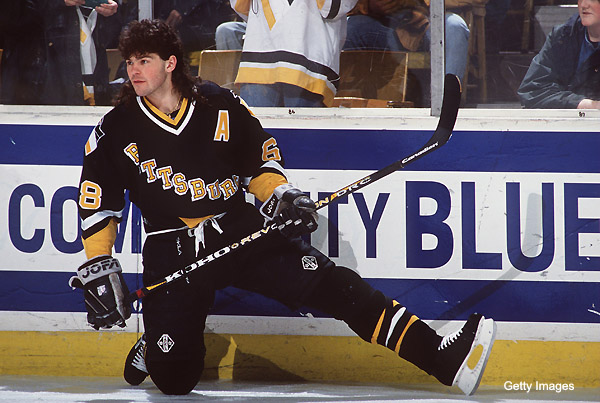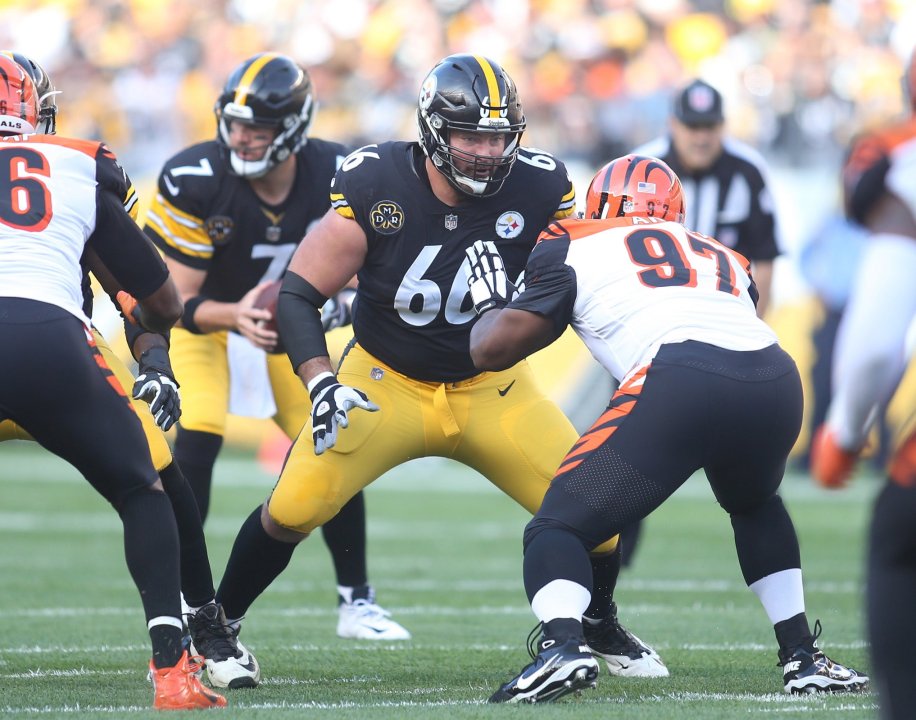His NHL career finally ended Monday when he cleared waivers with the Flames at age 45 and his contract was sent to his hometown team of Kladno.
By
In the end Jaromir Jagr became a figure of sheer accumulation, a living statue in more than one sense. He grew his hair back out into the curling cape that he sported when he was young and electric, but there was grey threaded through the mullet now, and he was slow as a tugboat when he saw the ice. We all decelerate. It just takes some longer than others.
“When you are younger, you know you are going to play for a long time,” Jagr said once. “I appreciate every game I can play. And the more important game it is, the better for me. The way I explain it: I feel like a 70-year-old guy who tried to be alive, and be thankful for every day he can live on this earth. That’s me and the hockey. I appreciate every day I can play.”
Jagr said that six years ago, and his NHL career finally ended Monday when he cleared waivers with the Calgary Flames at age 45 and his contract was sent to his hometown team of Kladno, which he owns. The great Czech is done his work here, after 24 seasons. He didn’t want to leave, but it’s like when Jagr was in a scoring drought in Boston on one of his many late-career stops and he said, shrugging, “It’s tough to fight a God.”
He did it as long as he could, and now the numbers can be carved in stone. 766 goals, third all-time; 1,155 assists, fifth; 1,921 points, a distant second only to Gretzky. He is third in NHL games played with 1,733, just 34 short of Gordie Howe. If Jagr hadn’t fled to the KHL for three seasons he would be No. 1; but then, Gordie played another 419 games in the WHA, too. Jagr won one Hart Trophy but three Lester B. Pearson awards as the best player as chosen by other players; he won five scoring titles and two Stanley Cups. Jaromir Jagr, by every measure, is one of the best hockey players ever.
And there was nobody like him. It always felt written that Jaromir was an anagram of Mario Jr., but while Mario became an imperial figure, Jagr was a joker, and stayed a joker. He was preposterously talented, but lived for fun. He drove his car too fast. He gambled a lot, and we don’t know if he ever stopped. His grin was blinding, or when he was bearded, wolfish. Some people saw a glory boy, a moody diva, a three-dollar bill. Sometimes, they might have been right.
But he was also the horse who saved the Penguins franchise from possible relocation when he produced a playoff series win over the mighty Devils in 1999 — that was the year when, as recounted by Sports Illustrated’s Michael Farber, Gretzky told Jagr he was the best player in hockey — and then forced his way out of Pittsburgh to Washington, where he was called a coach-killer and was traded to New York.
There was the KHL, where he was on the bench beside Alexei Cherepanov when the kid collapsed and died during a game, too. He didn’t often talk about that. When Jagr returned he was truly a workout demon: early skates with ankle weights and a weighted vest, stretching, endless work. In Boston, where he was forced to backcheck, Jagr said if he was his younger self, “I would probably, you know, score five or six goals, and nobody would do anything, maybe say you can do whatever you want. But it’s 2013.”
He carried around a little bronze Madonna and child, and kept it in his locker; he once said that if he hadn’t been a hockey player, he would have become a priest. He pushed the younger players he played with, showed them night skating and extra weights and a fidelity to hockey that felt like religion. Many of them followed his teachings, and learned.
When he got the assist that pushed him past Mark Messier into second-place all-time on the scoring list Jagr said, “I thought I was going to score goal or make a beautiful assist. But it hit my ass.” He got slow, became a huge posterior-first hulk who could read the angles and hold the puck forever and was all but wearing snowshoes, and he still led two different teams in scoring after he turned 40.
And at the end, as he begged and cajoled over Twitter for another job, his fidelity to the game started to feel a little like fear. From the time he was a child, Jaromir Jagr never wanted to stop playing hockey. He needed it. What else was there?
And maybe we misunderstood him. Maybe he only made it look easy for so long. Maybe he really did do 1,000 squats a day from the time he was seven years old. Maybe it was true when Jagr told TSN’s Ray Ferraro he was moody when he was young because he felt the pressure of his ability, and that he hated the feeling when everyone was looking at him to produce, and he knew he didn’t have it. He said that feeling was the worst in the world.
Maybe he was always the boy who missed the friends he grew up with in Kladno behind the Iron Curtain, whose father yelled constantly when he was on the ice, who had trouble trusting people. Maybe he really did feel the pressure of his ability, especially without Mario, and that really was one reason he went to the KHL, as he got older.
Maybe we never really knew Jaromir Jagr, all the way to the end. In 1997, in a quiet moment, Jagr told Pittsburgh reporters, including the Post-Gazette’s Joe Starkey, “I don’t think I’m a strong person. I try to be. I’m not. I just act that way. I’ve got too much feeling to be a tough person. I gotta act like I do, because a lot of people will take advantage of me and hurt me. Sometimes you gotta be mean. I know it’s not me, but it has to be that way. I just have to act tough or whatever. Be cocky.” Maybe he was the boy his father yelled at, the whole time.
But maybe he became that strong person, too. At the end he said, “I think I got to the point where hard work make me happy. And I think that’s the best thing that happened to me in my life. Some people are happy when they have a day off — I’m the opposite way. And I don’t know why it’s that, but that’s just me. And I’m just doing that to be happy. Strange stuff, but that’s how I would describe it.”
Jaromir Jagr wanted to play hockey forever, and he came near enough. He was brilliant, fun, infuriating and wise. He was his own singular person, and he will always be one of those players who you can imagine as soon as you close your eyes. And maybe, if you want to play forever, that’s as close as you can get.
/cdn.vox-cdn.com/uploads/chorus_image/image/58233299/885846542.jpg.0.jpg)









